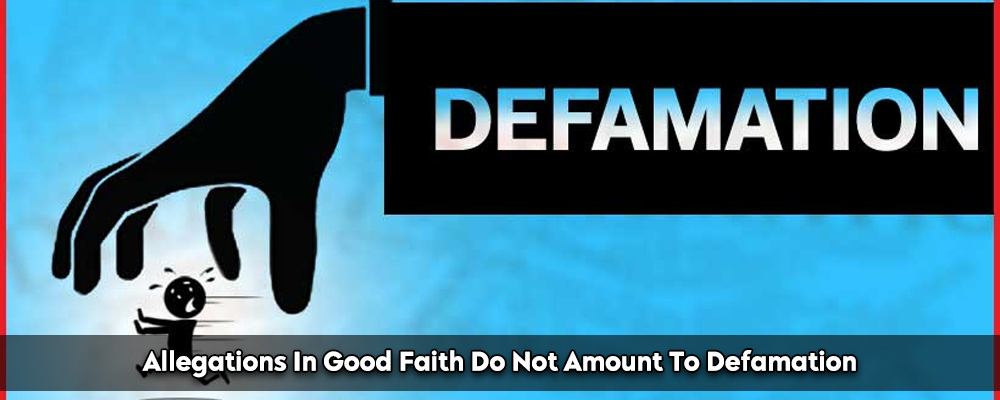The need to protect one’s reputation and the freedom to express oneself completely coexist in the complex worlds of law and communication in a delicate balance. When analysing the link between allegations, complaints filed in good faith, legitimate authority, and the prospective defamation charge, this equilibrium is put into action.
Essentials of Defamation
Section 499 and Section 500 of the Indian Penal Code (IPC) address the legal concept of defamation. In India, a case of defamation must meet a number of requirements. These essential ingredients are as follows-
Need A Legal Advice
The internet is not a lawyer and neither are you. Talk to a real lawyer about your legal issue

- The defamatory statement must be spread or publicized to a third party. It must be communicated to the public or someone other than the plaintiff and defendant, and it may be done orally, in writing, on paper, electronically, or visually.
- The defamatory statement is one that damages the credibility of the individual being referenced. The statement must have the ability to diminish the individual’s reputation in the view of rational people in society.
- The alleged victim of defamation must be clearly mentioned in the statement or identified by name. Although the plaintiff need not be specifically mentioned, it must be obvious to those who read or listen that reference is being made to the plaintiff.
- The defamatory assertion must be untrue. Defamation is typically defended by the truth. However, in some circumstances, even if the claim is accurate, if it is made with malicious intention, it may still be seen as defamatory.
- The plaintiff must suffer harm or reputational harm as a result of the defamatory statement. There must be actual harm to the plaintiff’s reputation; simple wounded feelings or emotional anguish may not be adequate.
- The defamatory statement had to have been made by the defendant with the aim to injure the reputation of the plaintiff (malice) or with negligence concerning the statement’s veracity.
Right to Freedom of Expression vs. Reputation
- The protection of allegations in good faith draws a careful balance between the essential right to freedom of expression and the equally important right to the preservation of reputation. Society understands the value of allowing people to express their concerns, especially when those issues involve organizations or people in positions of responsibility. Without this safeguard, people could be reluctant to voice legitimate concerns, which could result in corruption, injustice, and a decline in public confidence.
- Furthermore, the immunity provided for allegations made in good faith does not provide anyone free permission to make defamatory or malicious claims. The requirement of “good faith” serves as an oversight against any abuse of this protection. Courts carefully examine whether or not the person accused had a basis for believing that their accusations were true. This ensures the defense of the defendant party’s reputation while enabling the expression of real concerns.
Role of Judiciary: Supreme Court
- In the Kishore Balkrishna Nand (Plaintiff) v State of Maharashtra (Defendant) case, the historic decision was centered on accusations of corruption brought by the Plaintiff against the specific state of Uttar Pradesh officials. These accusations were made in good faith to the proper authorities with the goal of drawing attention to any suspected misconduct or improper behaviour. The plaintiff then discovered himself in the middle of a defamation lawsuit, which prompted him to ask the Supreme Court for redress.
- The Supreme Court of India ruled that allegations made to legitimate authorities in good faith are exempt from defamation law. The interests of the public and accountability criteria form the foundation of the Court’s reasoning for this ruling. It acknowledged that people need to be encouraged to alert the authorities to potential crimes without being intimidated by defamation lawsuits.
- The Apex Court went on to say that the immunity afforded to complaints made in good faith is consistent with the more general goal of encouraging responsibility and transparency in society.
Conclusion
The decision upholds the general idea that those who bring accusations in good faith to legitimate authorities are protected from the crime of defamation. This protection strengthens the pillars of justice and openness that characterize our society as well as giving truth-seekers the ability to voice their concerns.
One can talk to a lawyer from Lead India for any kind of legal advice. In India, free legal advice online is obtainable at Lead India. Along with receiving free legal advice online, one can also ask questions to the experts online free through Lead India.





 Talk to a Lawyer
Talk to a Lawyer